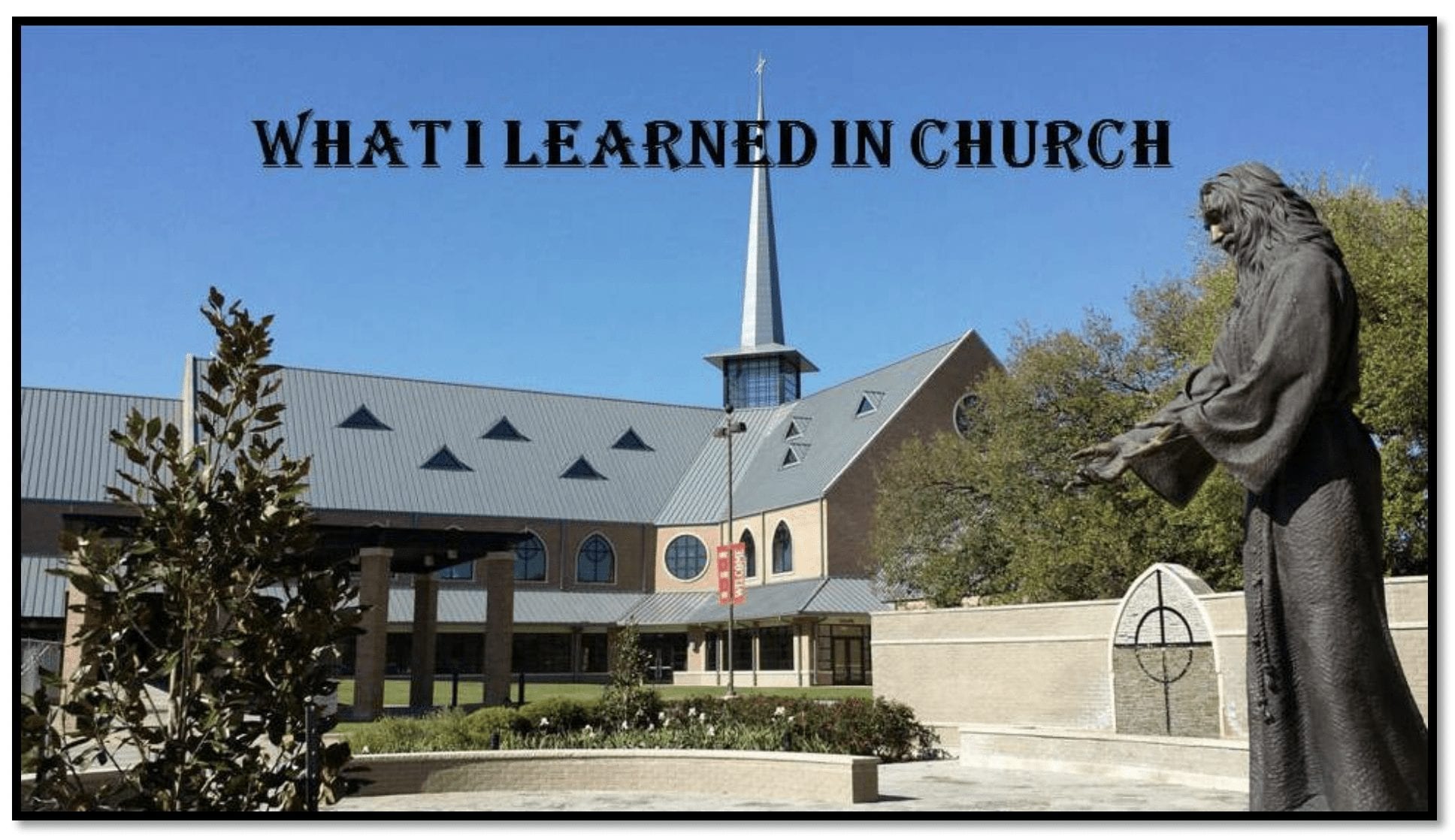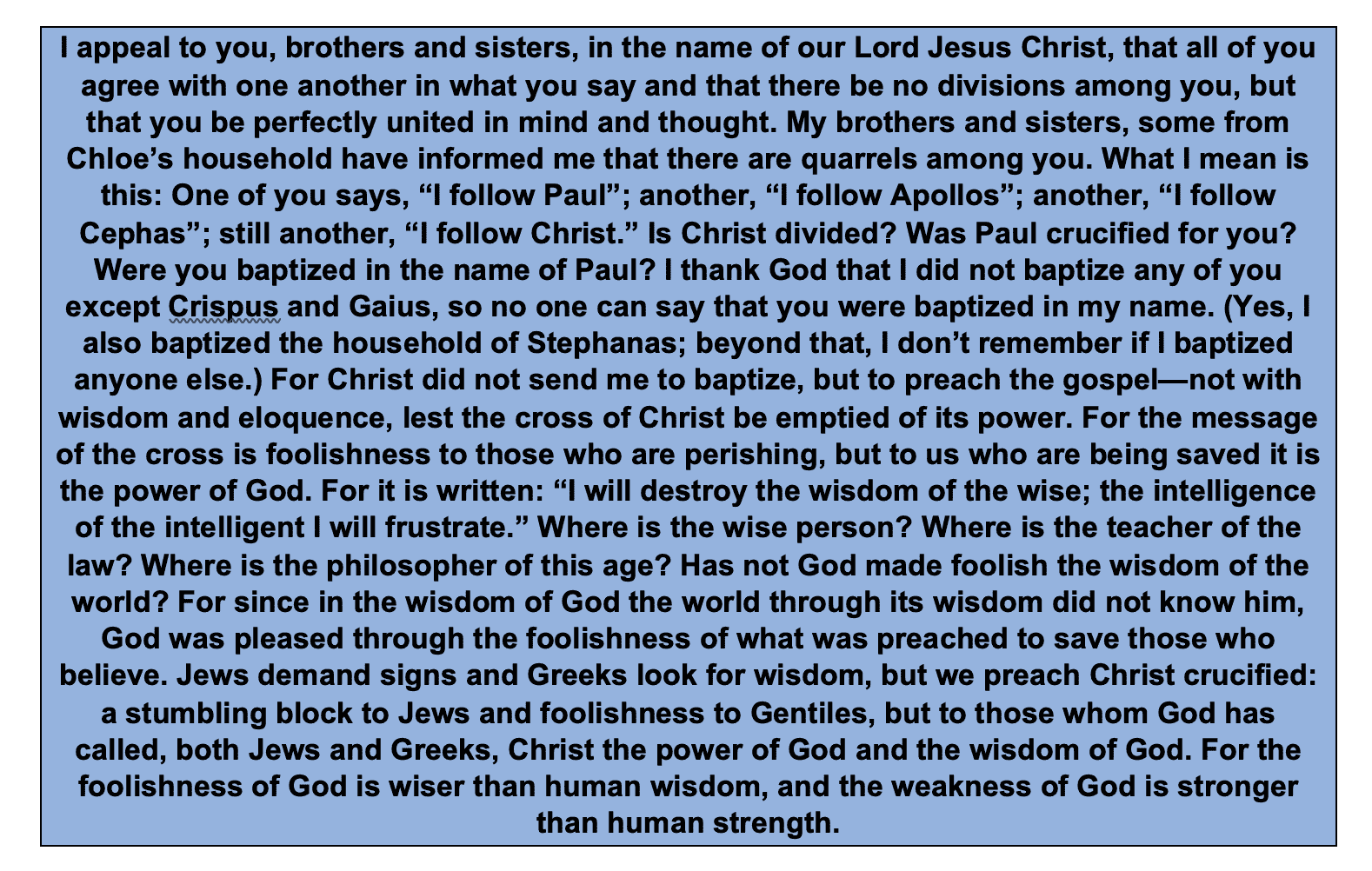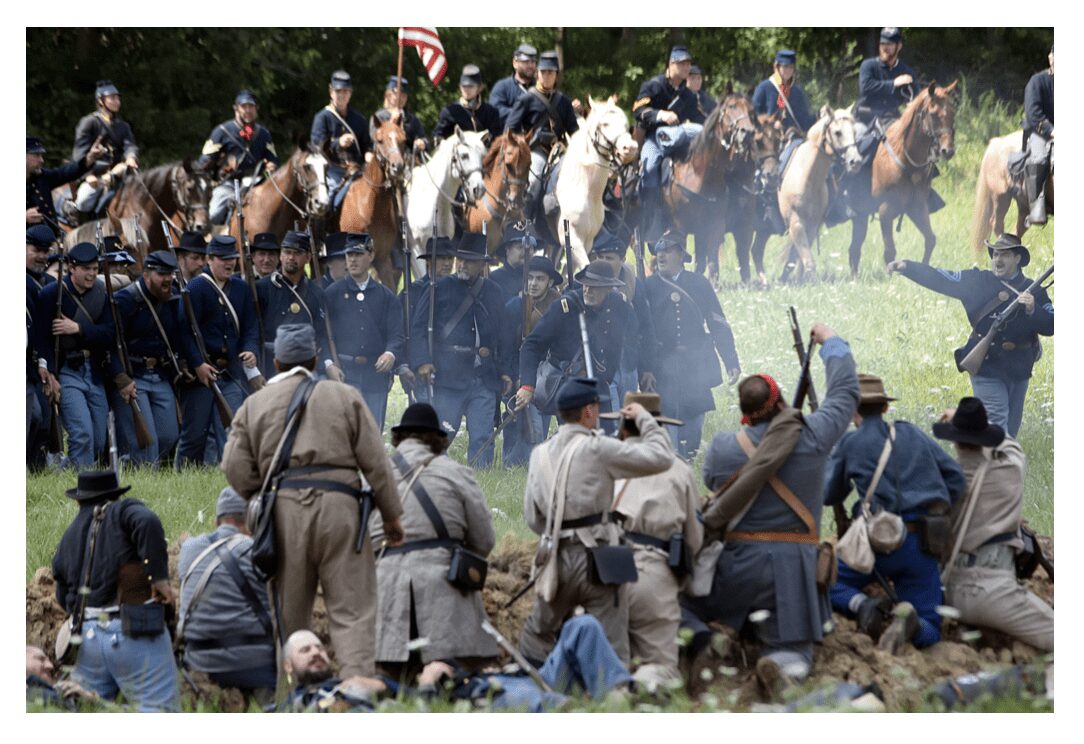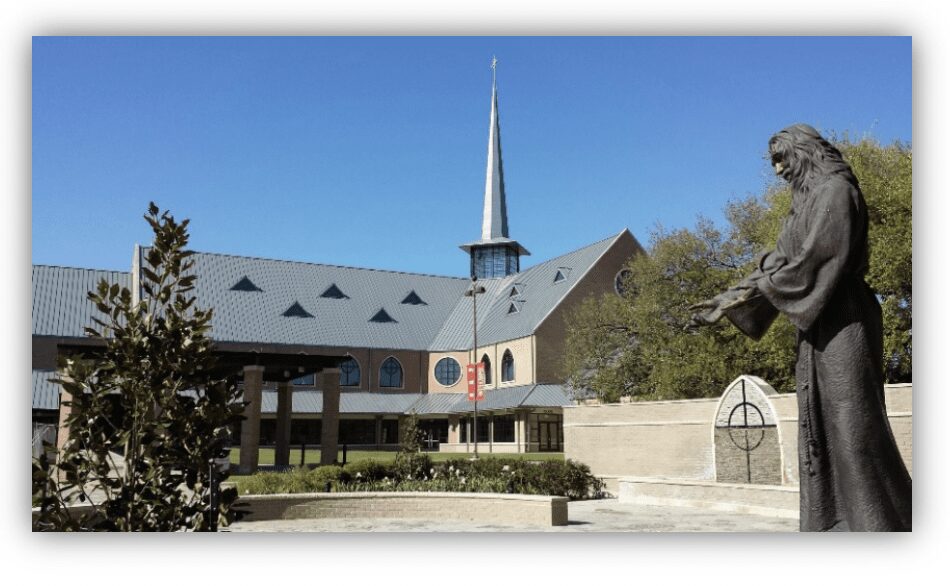
1 Corinthians 1:10-25 (NIV)

The buildup to the Civil War is one hot topic for some. There are those who say slavery was the major cause and point the finger to the South seceding in an effort to form their own country to protect slavery, thereby causing the North to refuse to allow this to happen. Some say it was due to economic issues. Then there’s the viewpoint that the North’s main reason for rejecting secession was to preserve the Union which if you’ll remember your history this type cause was based on American nationalism.
So we see other causes like tariffs, free-labor ideology vs pro-slavery arguments. There’s also the economic status of ex-slaves. States’ rights issues. Industry versus farming issues. Expansion issues. Do you have a headache yet? Need an aspirin?
From my standpoint, there are certainly many myths and misunderstandings as to what caused the Civil War. Here’s what is fact. The Civil War began on April 12, 1861, at Fort Sumter, Charleston, South Carolina. There did exist an immediate cause to the war and that came from the United States government’s refusal to allow or recognize the right of the southern states to secede from the Union. Also, the Confederate States went on to seize federal property within its states’ borders.

Photo by Chris Chow on Unsplash
Then, President Lincoln called for volunteers on April 15th to suppress the insurrection. This brought about the belief of white southerners that maybe they should fear Federal coercion. Due to that belief, four Upper South states went on to join the Confederacy which ultimately widened the war.

Photo by Jen Theodore on Unsplash
Now, Constitutional principle and secession weren’t the ultimate cause of the War but they were the proximate cause of conflict. Trust me, this is just the tip of this very gigantic iceberg. Many individuals got involved with the debate over whether the Civil War was caused only by the fact that the South did not want to abolish slavery. From here, you’re just going to have to do the research and decide for yourself.
Regardless of who or what or how any war starts, it always begins with division—taking sides. Remind you of today? All the division we see? Try not to get caught up in Paul’s language as literal in the fact that it doesn’t mean that he was telling the Church they needed to sacrifice their personal identity only to become a collection of look-alikes. He wanted them to look at the core issues of the Christian faith. Then, if there’s a serious disagreement, they should come together to find common ground so they could resolve those issues. It’s called unity within diversity.
I have friends with whom I differ from politically. We don’t agree on a stinkin’ thing. We can even get into some head-butting discussions.

Photo by Vincent van Zalinge on Unsplash
But I love them because there are so many other things we do agree on. And, because I can see past that stuff. Doesn’t mean I back down. Doesn’t mean I change my point of view. But I do listen. If someone has a viewpoint, I want to hear it. Hopefully, they will do me the same courtesy.
If you look at Paul’s life you see a man who once was evil. He was not one of the twelve disciples. He went after the twelve and persecuted them. But then, he had an epiphany and began to take the message of Jesus to the world. He became an apostle of Jesus.
As it pertains to the city of Corinth, Julius Caesar founded it in 44 B.C. Rome had taken over the world. Caesar was known as a superb general and politician but did not rule for very long. He grew up in very dangerous times. Rome was powerful and large and really couldn’t handle either. As Julius Caesar grew up, he allied himself against the nobility. His career took off and he won several political offices. Not all won reputably. However, he became a very well-known and somewhat controversial figure.
Corinth was a colony of Rome and it was on top of a former Greek city. So, Paul goes to Corinth to teach the gospel. Corinth was truly massive with twenty-four temples of different faiths. Oddly enough it was also very wealthy but it had terrible poverty as well. They were sports crazy and the poor became exploited by the wealthy. The wealthy became ungracious.
Like us, Corinth was diverse. Paul had founded the church around fifty people. He brought them together. For them to sit and share a meal was insane—they were so diverse. For them to do this, came about by the grace of God.
They probably met in someone’s home—new to Christianity—new to following Jesus. But didn’t want to change how they lived. They asked Paul how to get along—the angst between rich and poor was intense. The spiritual arrogance was prominent.
So Paul tells them to find their unity through Jesus. But the divisions were so real and they were so new to Christianity they didn’t know how to deal with it. They were immature.

Photo by Spencer Davis on Unsplash
In verse 10: I appeal to you, brothers and sisters, in the name of our Lord Jesus Christ, that all of you agree with one another in what you say and that there be no divisions among you, but that you be perfectly united in mind and thought. Paul is telling them to look for an agreement where you can come together so there will be no division. It will put you in the same mind and the same judgment.
Going forward from this, how can we share our grace with others? Here’s our message: Christ was crucified and he died for our sins. But he arose from the dead and sits at the right hand of God.
Paul tells the Church to stay focused on the mission. Paul was a great leader. He brought people together even in their division.

Photo by: Regina Stone Matthews
The movie, Hidden Figures about NASA is a lesson in leadership. It shows how you, as the employer, must learn how to remove obstacles for your workers. Even the smallest of gestures can go a long way in creating a true sense of belonging in your employees. (I had a boss like that once—I adored him). Look at how you might come across as bias. You can have all the best intentions in the world and yet it can make those with real talent feel most unwelcomed. Apologies are difficult at best. But you know what? It’s important to apologize when you’re in the wrong or when you mess up. If you are higher up the ladder, you might just think about using that rung to help and/or empower someone else. Here’s something super easy. Support—try supporting others in your employ. Just might make a huge difference. Always look at a person’s performance. Never at anything else. If you do this, you will find that diversity will emerge naturally. Remember Martin Luther King, Jr. who said, “I have a dream that my four little children will one day live in a nation where they will not be judged by the color of their skin but by the content of their character.” That applies to performance and abilities as well. There…a start, yes?
We need all the smart people at the table—those with one mind and focus. Because you see, when we come together, we are all one in Christ.
The best part of the scripture is this: “For the foolishness of God is wiser than human wisdom, and the weakness of God is stronger than human strength.”
We can only imagine, right?
Be that smart kid in the room.
And that’s what I learned in Church……see ya next time!